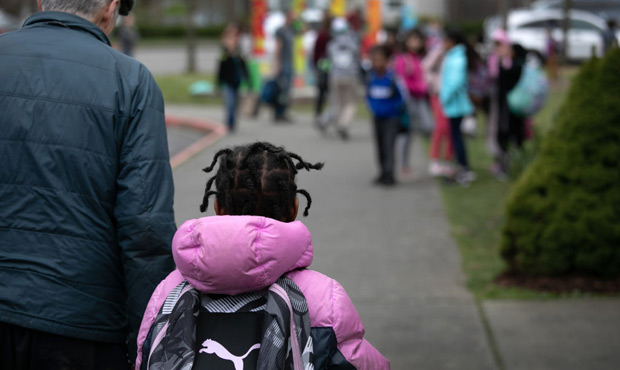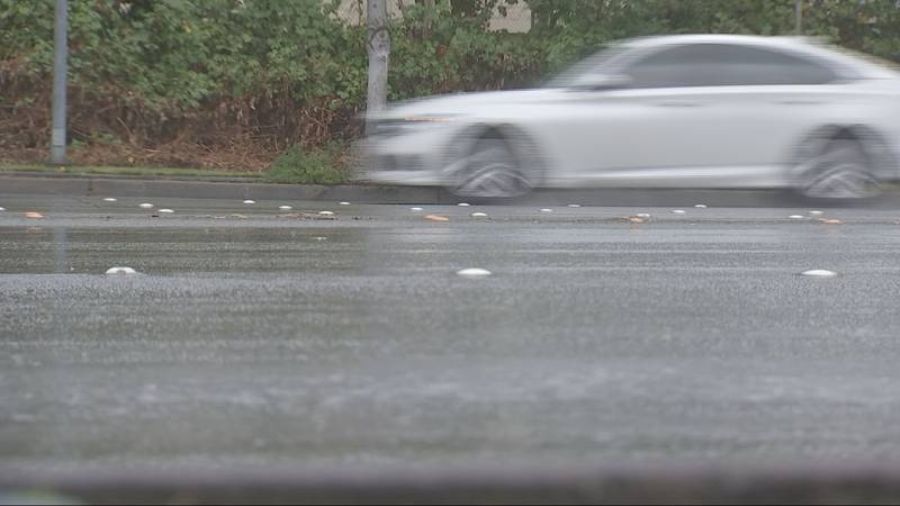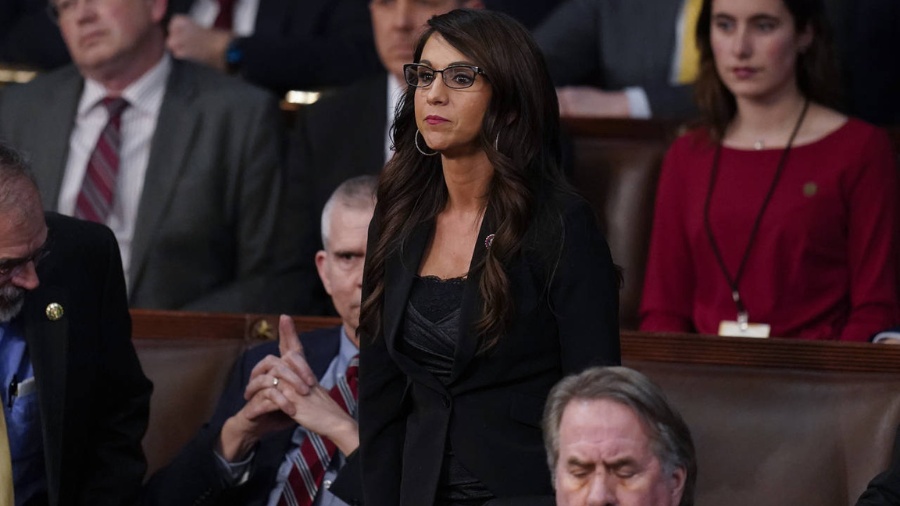Harvard Prof: Kids being out of school can have ‘devastating consequences’
Jul 31, 2020, 2:11 PM | Updated: Aug 3, 2020, 7:08 am

Fall classes begin this week. (Getty Images)
(Getty Images)
We have been talking a lot these days about what it will take to get kids back to school, but getting them back for in-person learning means getting school buildings pandemic ready. Joseph Allen is director of the Healthy Buildings Program at Harvard University’s School of Public Health, and he argues that schools can, and should, reopen. He joined Seattle’s Morning News to discuss why.
In Washington state, nearly half of all students could be learning online when fall comes around because the districts have already decided to do fully online learning at the offset. Does he believe leaders in these districts and individual schools are making the wrong call?
“I think, as a country, we have failed dramatically with the responses to coronavirus, and nothing is more in our face than the fact that we can’t get children back to school in August and September,” Allen said. “We have had many months to now prepare. We should have been preparing the second those schools closed, and doing everything in our power to get kids back, including not reopening other sectors of the economy like casinos, and bars, and nightclubs. We should have been prioritizing kids.”
Was the avoidance of a lockdown in Sweden the right move?
That said, he believes we too often overlook the greater cost to kids not being in school, which is not just about them getting an proper education.
“But here’s why it’s important to get kids back: Often we don’t talk about the devastating consequences of them being out of school — massive costs in virtual dropouts where I am in Boston, 10,000 high school kids didn’t make contact at all in the month of May. In Philadelphia, only 50% of elementary school kids make daily contact,” he said.
“Kids were locked down and more sedentary, they’re less social,” he added. “Thirty million-plus kids in this country rely on schools for food, so we have a food security issue. Kids who are home are more likely to suffer from abuse, neglect, exploitation and violence. So we’re not talking about the big risk of keeping kids out of school.”
Washington schools should reopen because my neighbors’ kids are loud
There have been other countries that have open schools and, unfortunately, it didn’t work out well. In Israel, for instance, they opened schools and then had to shut back down. What can we learn from past mistakes and countries like Israel?
“We have to look at the bigger picture here,” Allen said. “There is no such thing as zero risk. Will there be cases? Yeah, there will be cases. People point to Israel. It’s a country of many millions of school kids and they had a couple hundred (cases). And fortunately, none of those kids died, so they were cases, but none of them suffered severe adverse consequences.”
“If you look at other models across Europe in 22 other countries, they reopened schools and did not have a problem. Same thing in Asia,” he added. “I recognize that in those countries the underlying prevalence of cases is low. … At the same time, even countries that have higher levels of cases have shown that they were able to protect kids while they’re in school and, importantly, teachers. It is not an easy thing. I have kids of my own, I get it. The anxiety from teachers, parents, kids themselves — I understand that nothing about this is easy.”
Listen to Seattle’s Morning News weekday mornings from 5 – 9 a.m. on KIRO Radio, 97.3 FM. Subscribe to the podcast here.














